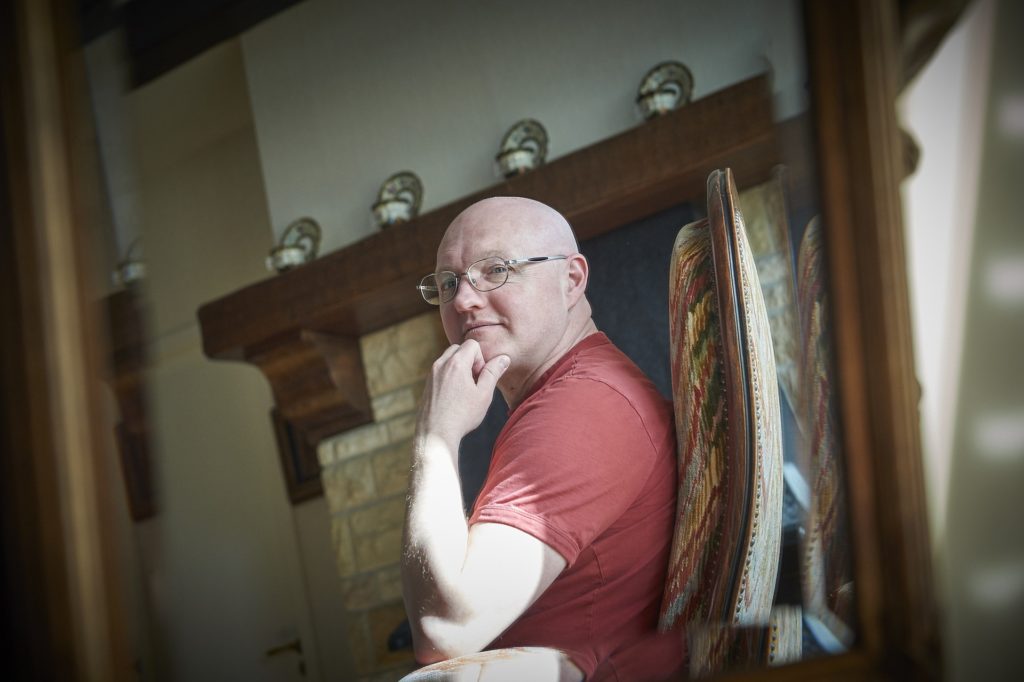
When you have a splinter in your finger it absorbs an inordinate amount of your attention because it aches so much! Whilst struggling to get the splinter out you may forgo a number of other things you need, or loose sight of the more basic aspects of looking after yourself.
In a similar way, when we identify a sexual addiction as a problem it is common to start developing tunnel vision around triggers, acting out, recovery procedures and more. I want to suggest to you that narrowing your focus too much is very dangerous for recovery.
If you think about a child growing up they learn to take care of themselves in so many ways, brushing their teeth, exercise, sleep, potty-training, how to dress, how to bath and the list goes on.
Practicing Self-Care in Sexual Addiction Recovery
As our lives grow complicated and over run by concerns with addiction, it is easy to let our basic self-care slip. In fact, it is likely that if you are addicted, your self-care is pretty poor.
Now, this isn’t a fluffy lesson of self-pampering. Rather, it is a crucial aspect to help you make recovery possible.
Our moods, emotions, thoughts and sensations are embodied, which means we experience them in our body! If you have a lack of care for that body it becomes “inflamed” in various ways that you may not have appreciated.
Sleep, eating and exercise for example are a “great trifecta” of indispensible self-care. If one of these is wonky, it can affect the others, and your degree of resilience, emotional control and self-awareness.
Keep a log of your sleep, eating and exercise to help you discern how you are doing in these three areas. Adults need to complete 5 sleep cycles per day, and a sleep cycle averages 90 minutes. This means you should be getting around 7-8 hours of sleep to give your brain proper rest.
Eating should contain 3 meals that are a balance of food groups and avoid sugar or caffeine extremes. Exercise ideally looks like 20 minutes of vigorous activity at least 3 times a week.
If you realize you are not hitting these benchmarks carefully consider what you need to alter in your life to allow for these things. Often the planning phase is the most daunting and once you make the change you experience the benefits and it is self-rewarding.
Consider Balance in Your Life
Once you become aware of the “trifecta”, it is time to consider how you are spending the rest of your time. I once read (and can’t remember where to give credit) that we commonly live our lives running at 98-100% of our capacity (or at least what feels like it).
It is no wonder then that we are an overwhelmed, tired and self-focused set of people a lot of the time. I mention this because I am suggesting new things for you to consider, which likely means something else needs to go. There is little sense in adding another 3% to your plate if it is full—this will negate the positive benefits you want to build.
Here are two simple tools to help you readdress the balance of life and take some of tunnel vision off of “addiction recovery”. If you work with these tools you will inevitably activate a more successful and holistic recovery.
Life-building Challenges
Make a grid with the following listed vertically,
- Achievement
- Exercise
- Diet
- Sleep
- Medication
- Spiritual
- Social
Now put the days of the week on the horizontal. You have a simple check-box chart to help you record which or these vital areas you are attending too.
The second aspect—which is where the brain changing power is—is to not down realistic, reachable challenges for each category that you will engage in this week. For example, under “Achievement” you might write, “complete all homework tasks on time”.
Make the challenges simple and practical. The challenges can incrementally build on one another over time. For example, for “Sleep” you might start by setting a consistent bedtime the first week, and then adding a set wake up time the next week.
Time Management
Start by creating two templates that includes the days of the week on the horizontal, and all the hours of the day on the vertical—like a calendar. One the first template write out what your normal week entails.
You can use general categories, but try and be as specific as you can—make sure you include time spent on any addiction. Highlight them in different colors so that you can visually comprehend how you spend your time, you may be very surprised.
The next step is to spend time journaling or talking about how you divide your time. Be as honest as you can with yourself about this—for example: “I think I only spend 30 minutes total with my kids alone because I am unsure how to relate to them, playing feels awkward and they exhaust me.”
 Consider what you find carefully and what you feel needs changing.
Consider what you find carefully and what you feel needs changing.
Notice your emotional response to this exercise and how it informs you of what you are valuing etc. Write a list of things you want to see more of in your week. Write a list of things you want to see less of in your week.
Use a second template to construct the week you would rather be living. Challenge yourself to integrate this new plan.
If you share this plan with three other people giving them a short explanation of why then you are far more likely to do it.
For example you might say to a friend, “You know, I realized how little time I had to exercise, so I have shuffled a few things around—I’m looking forward to trying my new schedule this week.” You don’t have to go into all of the details.
Try readjusting your focus without loosing sight of recovery. You will be glad you did.
 About the author: Paul Loosemore, MA PLPC, author of “21 Movements Towards Life” – The step-by-step guide to recovering from sexual addiction or pornography. Paul works as a mental health counselor, and consults with those who wish to recover from Sexual Addiction—both individuals and couples. He is the founder of www.stopsexualaddiction.com where you can find his guide, or contact him.
About the author: Paul Loosemore, MA PLPC, author of “21 Movements Towards Life” – The step-by-step guide to recovering from sexual addiction or pornography. Paul works as a mental health counselor, and consults with those who wish to recover from Sexual Addiction—both individuals and couples. He is the founder of www.stopsexualaddiction.com where you can find his guide, or contact him.
The opinions and views of our guest contributors are shared to provide a broad perspective of addictions. These are not necessarily the views of Addiction Hope, but an effort to offer discussion of various issues by different concerned individuals.
We at Addiction Hope understand that addictions result from a combination of environmental and genetic factors. If you or a loved one are suffering from an addiction, please know that there is hope for you, and seek immediate professional help.
Reviewed By: Jacquelyn Ekern, MS, LPC on March 13, 2017.
Published on AddictionHope.com
